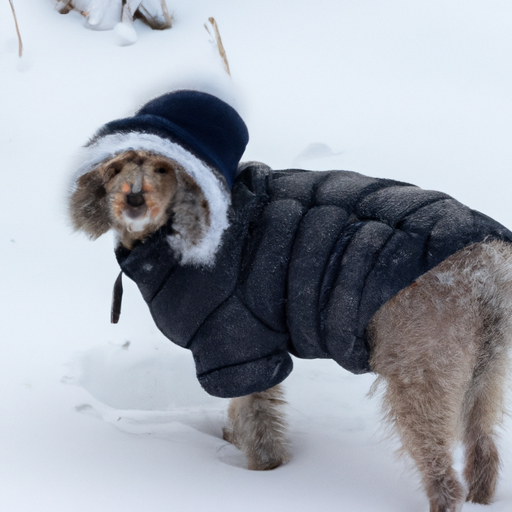Have you ever noticed your pet dog shaking and wondered if it could be because they’re cold? In this comprehensive guide, we will delve into the reasons why dogs shake, with a special focus on colder temperatures.
H2 Understanding Your Dog’s Body Language
To truly understand if your dog is cold, it’s crucial to decipher their body language. Dogs communicate in ways that can be incredibly subtle, and as a caregiver, you need to be attuned to their signals. Shaking can be a common sign of discomfort, but it’s not always due to the cold.
- Tense body: A dog’s body might become rigid when it’s cold.
- Tucked tail: A tail tucked between the legs can signal discomfort.
- Ears back: When a dog’s ears are pulled back flat against their head, it can indicate distress.
H2: The Science Behind Dogs and Cold
Dogs, much like humans, are warm-blooded creatures. They have a fur coat that serves as insulation, but it’s not always enough to protect them from harsh weather conditions. Dogs shake when cold as a way to generate heat and boost their body temperature. This is a natural reaction called thermoregulation, similar to how humans shiver.
- Smaller breeds: Smaller dogs have a larger surface area in relation to their body volume, which makes them lose heat faster.
- Age and health: Puppies, older dogs, and those with health issues may be more susceptible to the cold.
| Size | Tolerance to Cold |
|---|---|
| Small | Low |
| Medium | Moderate |
| Large | High |
H2: Tips to Keep Your Dog Warm
Now that you understand why your dog might be shaking, it’s time to explore how you can help. Here are some practical tips for keeping your pet warm:
- Provide a warm bed: Make sure your dog has a cozy, warm place to sleep.
- Invest in doggy clothing: Sweaters, booties, and doggy jackets can provide an extra layer of warmth.
- Limit time outdoors: Try to limit your dog’s outdoor activities during colder days.
H2: When to Seek Veterinary Help
While shaking due to cold is normal, it’s important to know when it’s time to seek professional help. If your dog continues shaking despite your efforts to warm them up, or if they show other signs of distress like lethargy, loss of appetite, or difficulty breathing, it’s time to contact your vet.
FAQ’s
-
Can all dogs tolerate cold weather?
No, tolerance to cold varies with the breed, size, age, and health status of the dog. -
What other reasons could make a dog shake?
Dogs can also shake due to anxiety, excitement, pain, or certain medical conditions. -
How can I tell if my dog is too cold?
If your dog is shivering, seems anxious, or tries to burrow into warm spaces, they might be too cold. -
Does a dog’s fur protect them from the cold?
While fur does provide some insulation, it’s not always enough, especially for breeds with short hair. -
Can dogs get hypothermia?
Yes, dogs can get hypothermia if they’re exposed to cold temperatures for too long.
Remember, as a caregiver, your pet’s comfort and health are in your hands. Understanding their needs and responses to different situations, like cold weather, can help ensure their wellbeing.



